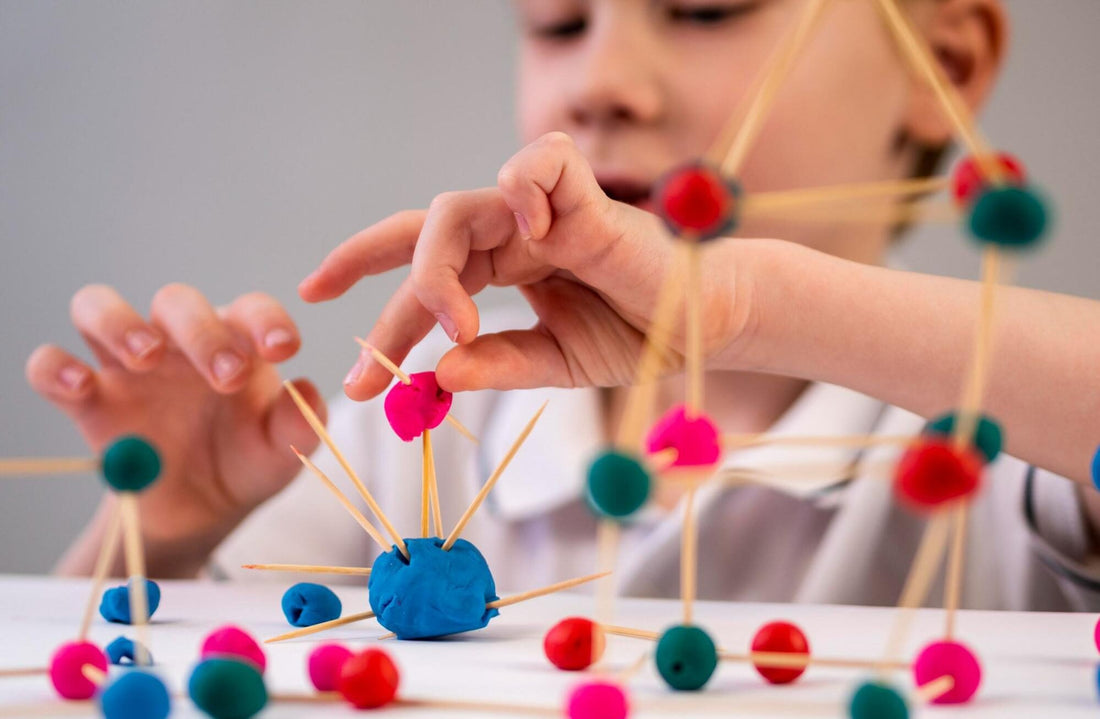
The Surprising Skill Your Child Needs Before They Can Write
Share
Before the Pencil Comes the Pinch
Every parent dreams of that proud moment when their child writes their name for the first time. But what if the real secret to great handwriting starts long before the pencil?
If your child struggles to button a shirt, hold a spoon correctly, or gets frustrated with zippers and crayons — the issue isn’t “practice.” It’s something deeper: fine motor skills.
These tiny movements may seem small, but they’re the foundation of confidence, independence, and academic success. Let’s explore what fine motor skills are, why they matter so much, and how you can build them at home — no expensive tools required.
What Are Fine Motor Skills (and Why Do They Matter So Much)?
Fine motor skills involve the small muscles in your child’s hands, fingers, and wrists — the ones they use to grasp, pinch, twist, and coordinate small objects.
These muscles are responsible for everyday milestones like:
-
Holding a pencil or crayon correctly
-
Cutting with scissors
-
Tying shoelaces
-
Buttoning and zipping clothes
-
Opening lunch boxes and snack packets
Without strong fine motor control, writing can feel like a battle. Kids get tired quickly, struggle with pencil grip, and lose interest in creative play.
In other words — fine motor skills are the bridge between playtime and school readiness.
5 Playful Activities to Build Fine Motor Skills (That Aren’t Boring Drills)
Let’s ditch the worksheets and build real strength through fun, engaging play. Here are five easy, screen-free activities you can start today:
1. The Play-Doh “Restaurant” 🍝 (Builds Hand Strength)
Set up a pretend “restaurant” and let your child be the chef!
They can roll out Play-Doh “dough,” pinch small pieces for toppings, or flatten pancakes.
Each squeeze and roll strengthens hand muscles — just like a mini workout for tiny fingers.
🧠 Pro Tip: Encourage using both hands together — one to roll and one to hold — to build coordination.
2. The “Rescue Mission” 🪀 (Improves Grip & Focus)
Grab a bin, fill it with rice, pasta, or pom-poms, and hide small toys inside.
Hand your child a pair of kitchen tongs or tweezers and say, “Rescue all the animals!”
This game challenges them to grip precisely — building both control and patience.
💡 Why it works: It strengthens the same muscles needed for a steady pencil grip.
3. The Scissor Skills “Salon” ✂️ (Boosts Coordination)
Draw a happy face on a paper plate and tell your child it’s time for a haircut!
Let them snip “hair strands” into fun shapes.
Cutting helps develop bilateral coordination — using one hand to hold while the other cuts.
✨ Tip: Start with child-safe scissors and thicker paper for easier control.
4. The Dropper “Science Lab” 🔬 (Encourages Precision)
Turn your kitchen into a mini science lab!
Fill small bowls with colored water and give your child a dropper or syringe.
Ask them to transfer water between bowls or mix colors to make new ones.
💧 This activity builds finger strength and teaches control — both key for neat writing later on.
5. Tracing Made Fun 🖍️ (Introduces Pencil Control)
Plain tracing worksheets can get dull quickly — and kids tune out fast.
Instead, turn tracing into a game!
Our Playloom Alphabet & Activity Packs combine tracing with mazes, coloring challenges, and fun characters, so kids don’t even realize they’re practicing.
Each page builds hand-eye coordination while making them love learning — not dread it.
Build the Hands Before the Handwriting
Before your child can write their ABCs, they need the muscle memory to control the pencil.
Every time they pinch, squeeze, snip, or draw, they’re strengthening the foundation for future confidence — in writing, dressing, and problem-solving.
So next time you sit down to “practice writing,” try these activities first.
You’ll see fewer tears, better focus, and faster progress — all while they think they’re just playing.
Because at the end of the day, strong hands build strong minds. 💪✨
